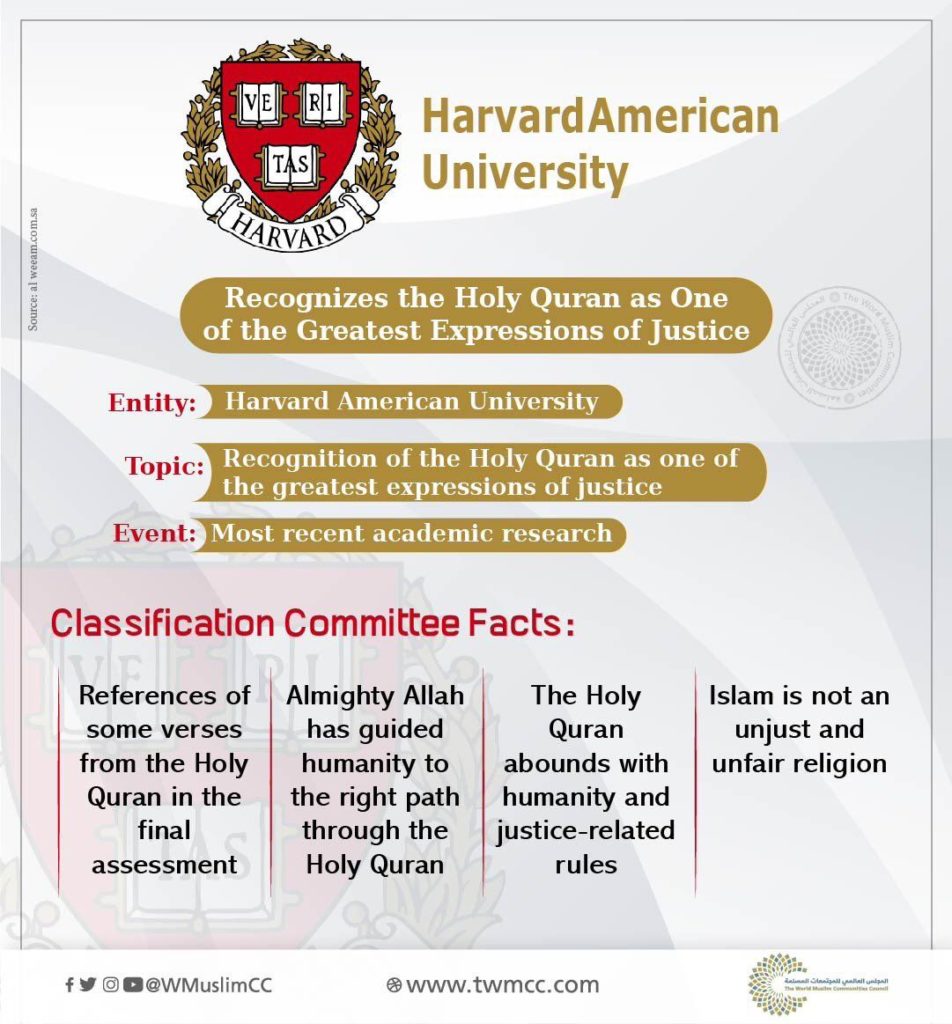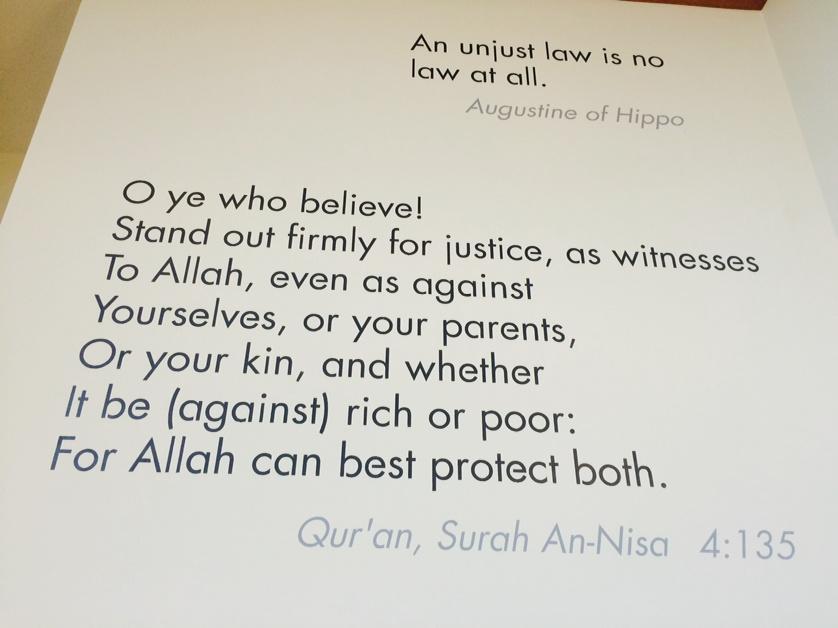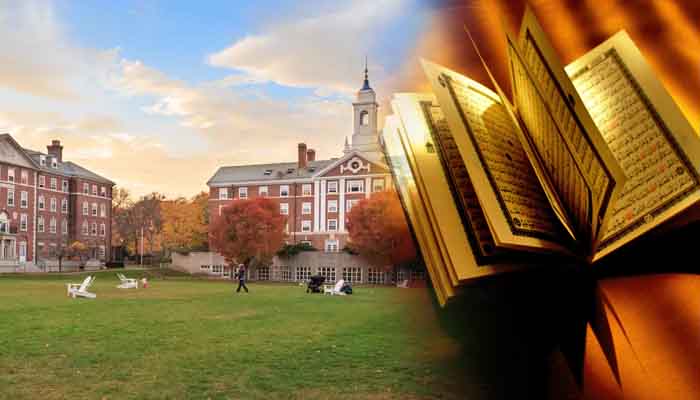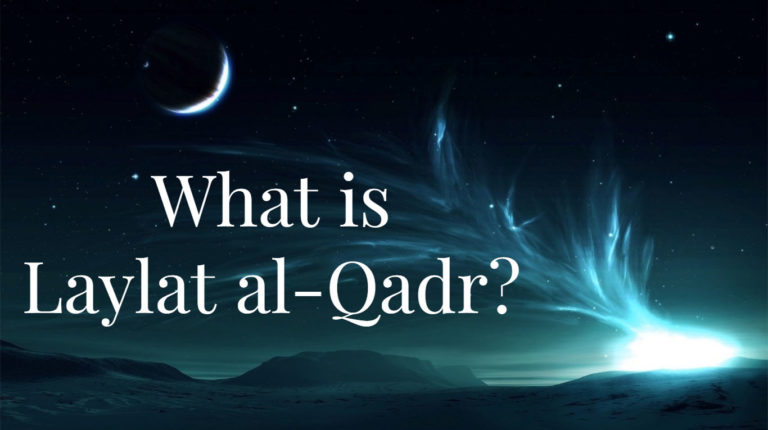When it comes to the law, both legislation and implementation are deemed relative. But the same can’t be said for justice as by definition it is the offering of what is morally fair and right. As we know, the law should seek justice and Harvard knows exactly how Islam is doing so.
Harvard Law School, one of the world’s most prestigious institutions (No. 7 in the world, to be exact), actually speaks of justice at the entrance of its faculty library. In doing so, it references a verse from the Quran, regarding it as one of the greatest expressions of justice in history.

Harvard University quotes the Quran, with its divine words, which is the final revelation as believed by us, the Muslims. Allah has selected it as His last and final book. Without any doubt, it came from the Creator of this Universe and guides us on the right path of living.
The phrase at hand is Verse 135 of Surat Al-Nisaa (The Women), which is posted on a wall facing the faculty’s main entrance, a wall that portrays some of the best phrases with regards to justice.

The first media reports of the news date back to February 2014, but the news resurfaced on our newsfeed this week. Harvard Law School is known to be home to the biggest academic library around the world and is a part of Harvard University.
Surat Al-Nisaa is known for its empowerment of women. Islam generally has championed women’s rights since day one. The religion was among the first to tackle female infanticide, encourage women to work, and spread equal treatment between the sexes in marriage and Islamic duties. It has been credited for being the first religion to give women inheritance rights.
Established in 1817, Harvard is the oldest continually-operating law school in the U.S. and hosts the largest academic law library globally.
The Words of Justice exhibition, a collaboration between students, faculty, and staff at the university, is a testimony of the endurance of humanity’s yearning for fairness and dignity through the law, as stated on its website.








